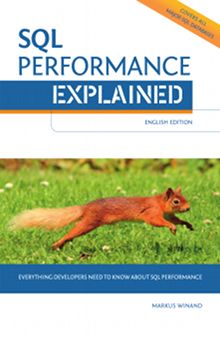Numeric strings are numbers that are stored in text columns. Although it is a very bad practice, it does not automatically render an index useless if you consistently treat it as string:
SELECT ...
FROM ...
WHERE numeric_string = '42'Of course this statement can use an index on NUMERIC_STRING. If you compare it using a number, however, the database can no longer use this condition as an access predicate.
SELECT ...
FROM ...
WHERE numeric_string = 42Note the missing quotes. Although some database yield an error (e.g. PostgreSQL) many databases just add an implicit type conversion.
SELECT ...
FROM ...
WHERE CAST(numeric_string AS INT) = 42It is the same problem as before. An index on NUMERIC_STRING cannot be used due to the function call. The solution is also the same as before: do not convert the table column, instead convert the search term.
SELECT ...
FROM ...
WHERE numeric_string = CAST(42 AS VARCHAR(10))You might wonder why the database does not do it this way automatically? I think it is because converting a string to a number always gives an unambiguous result. This is not true the other way around. A number, formatted as text, can contain spaces, punctation, and leading zeros. A single value can be written in many ways:
42
042
0042
00042
...The database cannot know the number format used in the NUMERIC_STRING column so it does it the other way around: the database converts the strings to numbers—this is an unambiguous transformation.
If you like this page, you might also like …
… to subscribe my mailing lists, get free stickers, buy my book or join a training.
The CAST AS VARCHAR expression returns only one string representation of the number. It will therefore only match the first of above listed strings. If we use CAST AS INT, it matches all of them. That means there is not only a performance difference between the two variants but also a semantic difference!
Using numeric strings is generally troublesome: most importantly it causes performance problems due to the implicit conversion and also introduces a risk of running into conversion errors due to invalid numbers. Even the most trivial query that does not use any functions in the where clause can cause an abort with a conversion error if there is just one invalid number stored in the table.
Tip
Use numeric types to store numbers.
Note that the problem does not exist the other way around:
SELECT ...
FROM ...
WHERE numeric_number = '42'The database will consistently transform the string into a number. It does not apply a function on the potentially indexed column: a regular index will therefore work. Nevertheless it is possible to do a manual conversion the wrong way:
SELECT ...
FROM ...
WHERE TO_CHAR(numeric_number) = '42'
